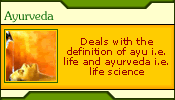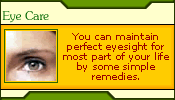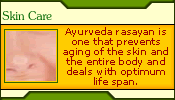|
Methods of Exercise
Several systems of exercise have been developed over the years,
the most popular among them being the Swedish system and yoga asanas,
the later having been practised from ancient times in India. Whichever
system you choose to adopt, the exercises should be performed systematically,
regularly and under proper guidance.
To be really useful, exercise should be taken in such a manner
as to bring into action all the muscles of the body in a natural
way. Walking is one such exercise. It is, however, so gentle in
character that one must walk several kilometers in a brisk manner
to constitute a fair amount of exercise. Other forms of good exercise
are swimming, cycling, horse-riding, tennis, etc.
Precautions
Vigirous exercise of any kind should not be taken for an hour and
a half after eating, nor immediately before meals. Weak patients
and those suffering from serious diseases like cancer, heart trouble,
tuberculosis and asthama should not undertake vigious exercise except
under the supervision of a competent physician. If exercising makes
you tired, stop immediately . The purpose of exercise should be
to make you feel refreshed and relaxed and not tired.
The most important rule about the fitness plan is to start with
very light exercise and to increase the effort in gradual and easy
stages. The sense of well-being will begin almost immediately. One
can start off with a brisk walk for 15 to 20 minutes. A comfortable
sense of tiredness should be the aim. It is valueless and possibly
harmful to become exhausted or seriously short of breath. Perhaps,
one should aim at activities which need about two-thirds of one's
maximum ability. One way to assess is to count your own pulse rate.
Counting of pulse is quite easy. Feel the pulse on your left wrist
with the middle three fingers of your right hand. Press just firmly
enough to feel the beat easily. Now count the number of beats in
15 seconds, with the help of a watch with clear second hand and
calculate your rate by multiplying by four. At rest heart beats
70 to 80 times a minute. This rate increases during exercise. Really
vigorous can produce rates as high as 200 beats per minute or more.
Reasonable aim is to exercise at about two-thirds of maximum capacity.
It follows that heart rate should be about 130 per minute during
and just after exercise. Always avoid over-exertion and never allow
your pulse go above 190 per minute minus your age.
|


















